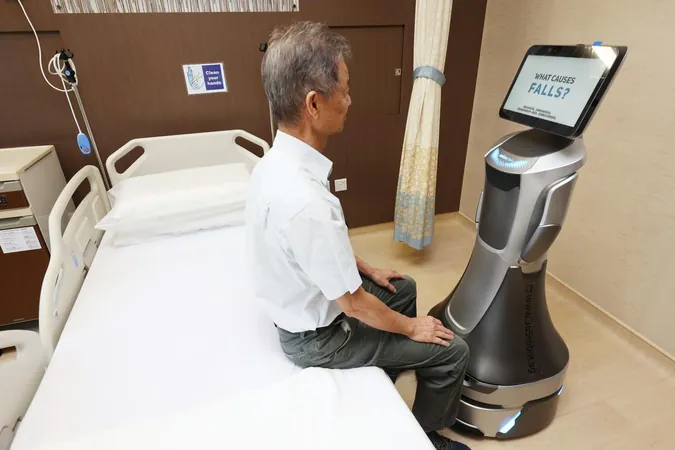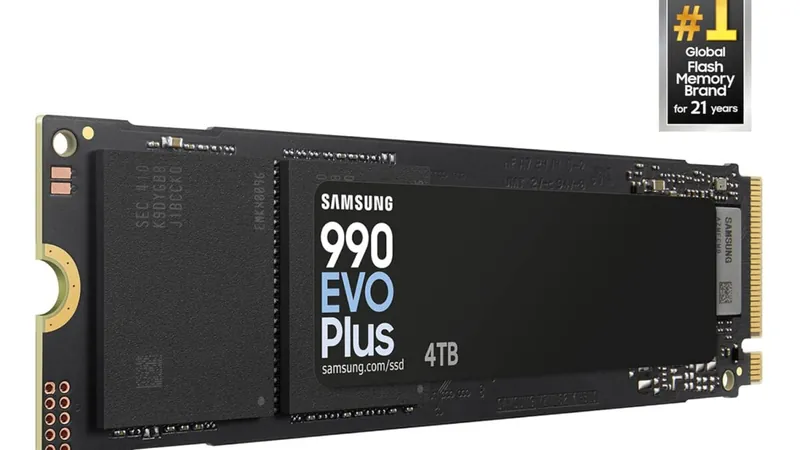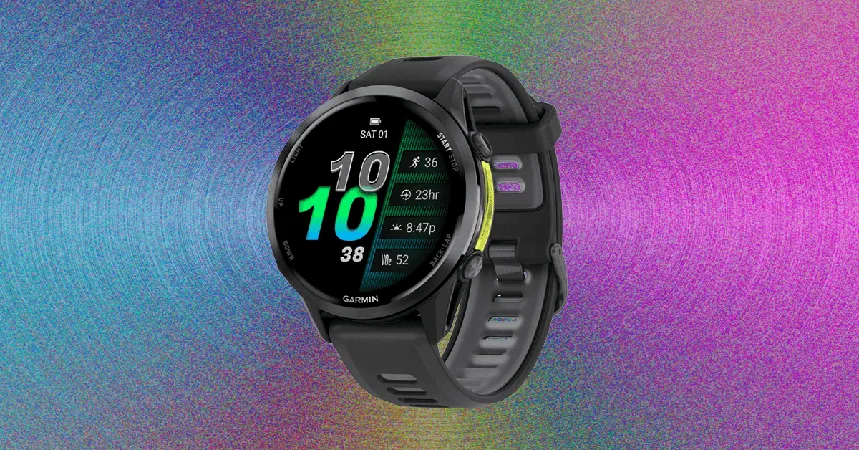
Revolutionary AI Program to Boost Heart Health for 60,000 Seniors Annually!
2025-05-28
Author: Yu
In a groundbreaking move to enhance heart health among seniors, a new program utilizing advanced artificial intelligence tools is set to revolutionize how cardiovascular care is delivered in Singapore. The initiative, known as the Cardiovascular Ageing and Longevity Programme (Crane), aims to impact about 60,000 patients each year over the next three to five years.
The importance of this program is underscored by alarming statistics: in 2023, nearly one in three deaths in Singapore were attributed to cardiovascular disease. Just ask 71-year-old Teo Yong Choon, who faced a life-threatening heart attack after ignoring alarming symptoms. Following emergency surgery and significant lifestyle changes, Mr. Teo is now committed to monitoring his health with the help of the latest technology at the National Heart Centre Singapore (NHCS).
At NHCS, Teo's health will be assessed using two innovative AI tools designed to provide critical insights into his condition and predict risks of future heart issues. Associate Professor Angela Koh, the director of Crane, emphasizes that these tools offer doctors a proactive approach to identifying early signs of deterioration.
Spotting Risks Before They Strike!
One of the standout features of the program is the 3DGait tool, which evaluates a person’s mobility to detect pre-frailty—an early warning for potential heart disease. Prof. Koh explains, "If you are pre-frail, your risk of heart issues might be elevated. The earlier we detect this state, the better chance we have to prevent a serious decline."
Advanced Monitoring Like Never Before!
Another groundbreaking tool, the Medi-Kiosk, takes health assessments to new heights. Not only can it measure fundamental health metrics like BMI and blood pressure, but it also provides in-depth data on body composition. This includes vital information on muscle mass, fluid levels, and visceral fat—key indicators in heart health management.
Prof. Koh highlights the importance of fluid status, noting that water retention can often signal heart failure. Armed with this wealth of data, healthcare providers can intervene before conditions worsen.
A Holistic Approach to Cardiovascular Care!
Beyond advanced technology, the Crane program focuses on enhancing clinical care, expanding research on cardiovascular aging, and educating both healthcare professionals and patients about geriatric cardiology.
Professor Yeo Khung Keong, NHCS's chief executive, states, "With our expertise in cardiovascular care and research, NHCS is poised to lead this transformative initiative, benefiting our local community while providing insights that can impact cardiovascular health across the Asia-Pacific region."
The implications of the Crane program are monumental, promising not only to improve individual patient outcomes but also to reshape the landscape of heart health for the aging population. This is more than just an initiative; it's a vital lifeline for many seniors seeking to ensure a longer, healthier future.




 Brasil (PT)
Brasil (PT)
 Canada (EN)
Canada (EN)
 Chile (ES)
Chile (ES)
 Česko (CS)
Česko (CS)
 대한민국 (KO)
대한민국 (KO)
 España (ES)
España (ES)
 France (FR)
France (FR)
 Hong Kong (EN)
Hong Kong (EN)
 Italia (IT)
Italia (IT)
 日本 (JA)
日本 (JA)
 Magyarország (HU)
Magyarország (HU)
 Norge (NO)
Norge (NO)
 Polska (PL)
Polska (PL)
 Schweiz (DE)
Schweiz (DE)
 Singapore (EN)
Singapore (EN)
 Sverige (SV)
Sverige (SV)
 Suomi (FI)
Suomi (FI)
 Türkiye (TR)
Türkiye (TR)
 الإمارات العربية المتحدة (AR)
الإمارات العربية المتحدة (AR)